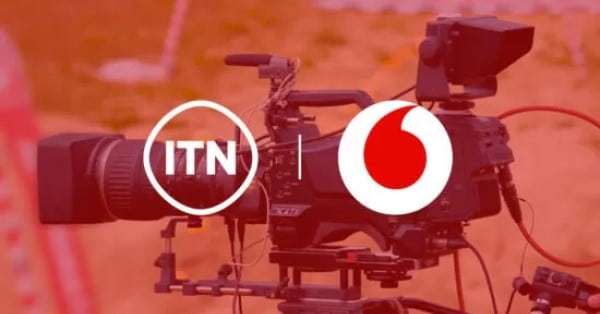A partnership between Vodafone and ITN will enable the Coronation of His Majesty King Charles III to be the first UK broadcast powered by a public 5G Standalone (5G SA) network. This collaboration marks the first instance of 5G SA technology being employed to facilitate a broadcast in the UK.
Vodafone has collaborated closely with ITN to allocate a portion of its public 5G SA network specifically for the Coronation broadcast, representing the first time a UK telecommunications company has provided a slice of its public 5G SA network for a significant event broadcast. This innovative approach showcases the potential of 5G SA technology in the broadcasting industry and beyond.
In January 2023, Vodafone became the first UK telecommunications company to test its 5G SA network for public use. Select consumers participated in trials to experience the network’s cutting-edge capabilities. By dedicating an exclusive slice of Vodafone’s public 5G SA network to ITN, the live Coronation broadcast coverage can be swiftly and securely transmitted from Westminster to ITN’s headquarters in Gray’s Inn Road, London. From there, the coverage will be distributed across the nation and the world.
Vodafone has also launched a 5G Standalone Mobile Private Network solution, providing ultra-low latency, and high availability connectivity to empower businesses in the future. Nick Gliddon, UK Business Director of Vodafone, expressed pride in working with ITN on this groundbreaking partnership, noting that innovation is at the heart of Vodafone’s mission. The potential applications of 5G SA technology are vast and include AI, autonomous vehicles, holographic calls, IoT, and more, all of which will help drive the UK’s digital economy and usher in the next digital era.
Jon Roberts, Director of Television, Production, and Innovation at ITN, commented on the significance of the event, as it occurs 70 years after the 1953 Coronation, which was also a milestone in outside broadcasting. Roberts expressed excitement about the partnership with Vodafone and the opportunity to explore the capabilities of 5G SA technology together.
Network slicing, a key feature enabled by 5G SA, allows telecommunications operators to create separate and isolated networks for different use cases, each with distinct configurations. This is particularly beneficial for the broadcasting industry as it ensures quick and reliable upload speeds for live streaming and minimizes the risk of network congestion impacting broadcast performance, especially during large events like the Coronation.
As media organizations increasingly rely on mobile networks for outside broadcasts, achieving predictable network performance has become crucial. Although mobile private networks are commonly used, they often require heavy-duty equipment and time-consuming planning. Network slicing offers broadcasters a private mobile network for video transmission without the need for additional equipment, planning, back-office support, or spectrum licensing, all accessible via a SIM card.
Vodafone and Coventry University have also launched the UK’s first 5G SA Media Innovation Lab. This facility enables broadcasters, media companies, and software developers to collaborate with Vodafone and Coventry University experts to develop new use cases based on the high bandwidth and low latency capabilities of 5G, as well as explore the advantages of services like network slicing. Vodafone’s technology partner, Ericsson, and ITN’s technology partner, Live U, supported the testing of the capability for this partnership at the 5G SA Media Innovation Lab in Coventry. The lab provides a safe and configurable environment for developing and testing end-to-end solutions, supporting proof of concepts, and fostering innovation in the media industry.
The 5G SA Media Innovation Lab at Coventry University serves as a unique platform for stakeholders in the media sector to explore the transformative potential of 5G SA technology. By working alongside Vodafone engineers and Coventry University academics, these professionals can push the boundaries of what is possible with this new technology and develop groundbreaking use cases for the media industry.
This pioneering partnership between Vodafone and ITN demonstrates the impressive capabilities of 5G SA technology and its potential to revolutionize the broadcasting industry. As the first UK broadcast facilitated by a public 5G SA network, the Coronation of King Charles III serves as a testament to the advancements in cellular connectivity and the innovative spirit of both Vodafone and ITN.
The successful implementation of 5G SA technology in the Coronation broadcast will undoubtedly pave the way for more widespread adoption of this cutting-edge technology in various industries. From AI and IoT to autonomous vehicles and holographic calls, 5G SA promises to supercharge the UK’s digital economy and usher in a new era of innovation and technological advancement.
In conclusion, the historic Coronation of King Charles III will not only mark a significant moment in the UK’s monarchy but also showcase the transformative potential of 5G SA technology. As Vodafone and ITN collaborate to bring this event to audiences around the world, they are also pioneering the future of cellular connectivity and setting the stage for the next generation of technological breakthroughs.


















